Can you make an egg float in water? In this simple science experiment, we take just a few minutes to test the laws of density and discover just how easy it is to make an egg float!
Below you’ll find detailed instructions and our demonstration video as well as the scientific explanation of “why it works.” We’ve also included a more ideas to explore the concept a bit further.
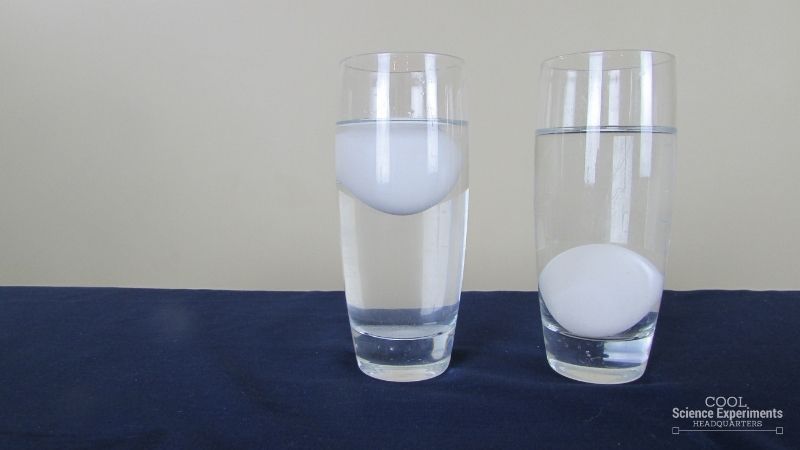
JUMP TO SECTION: Instructions | Video Tutorial | How it Works
Supplies Needed
- 2 Eggs
- 2 Tall Drinking Glass
- Salt
- Water
Floating Egg Science Lab Kit – Only $5
Use our easy Floating Egg Science Lab Kit to grab your students’ attention without the stress of planning!
It’s everything you need to make science easy for teachers and fun for students — using inexpensive materials you probably already have in your storage closet!
Floating Egg Science Experiment Instructions
Experiment Setup – Start with some observations about the eggs. Note that they are both raw eggs and have a similar size and weight. Then ask some questions. Do you think that the eggs will sink or float when placed in water? Do you think it’s possible to make them float? If so, how? Write down your hypothesis (prediction) and then follow the steps below.
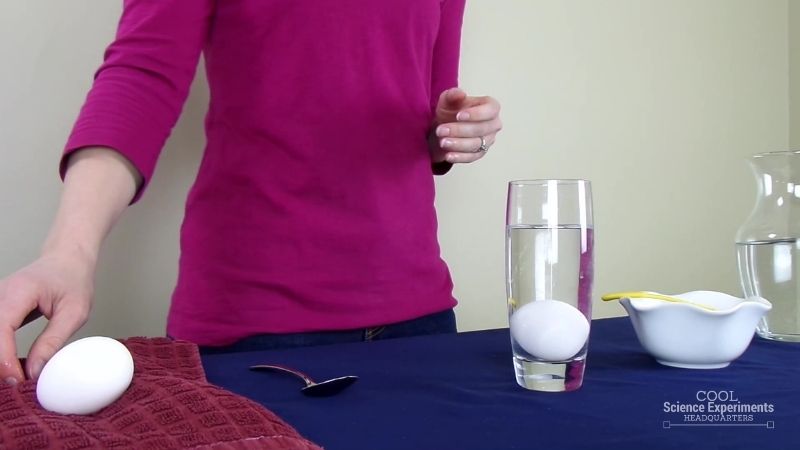
Step 1 – Fill a tall drinking glass about 3/4 full of water and carefully place the egg into the glass. What happens to the egg? That’s right, it sinks to the bottom.
Did you know there is a way to make it float? Continue on in the experiment to find out how.
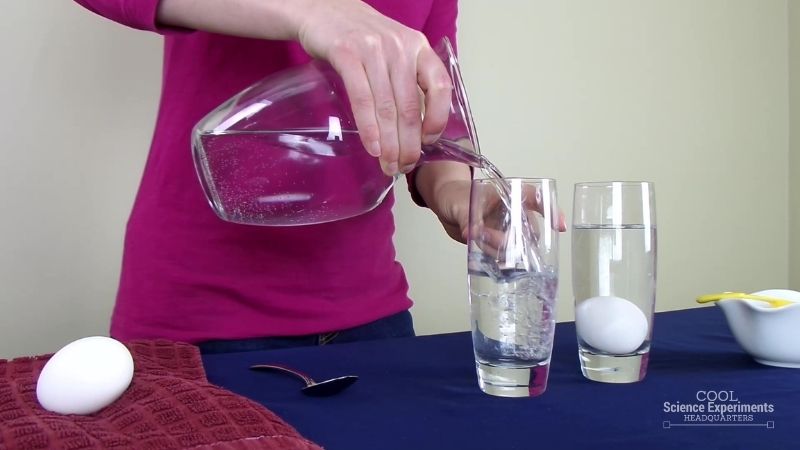
Step 2 – Fill another tall drinking glass about 3/4 full of water.
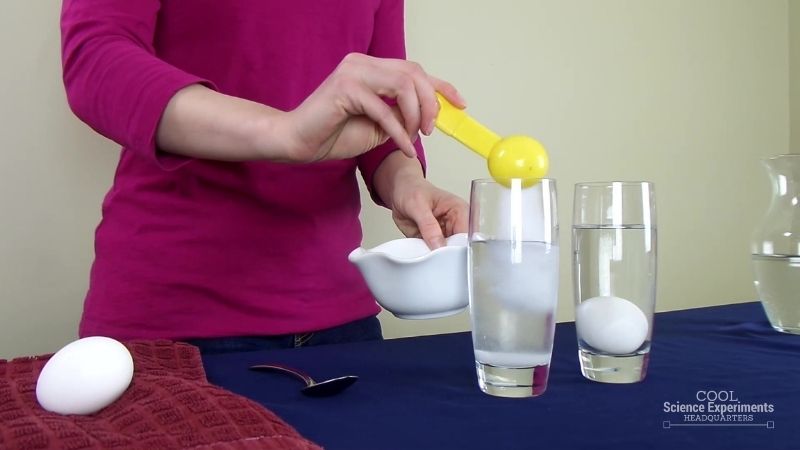
Step 3 – Add 3 Tablespoons of salt to the water and stir until it is completely combined. What do you think will happen if you place the egg into the glass with the salt water? Write down your hypothesis (prediction) and then test it to see if you were right.
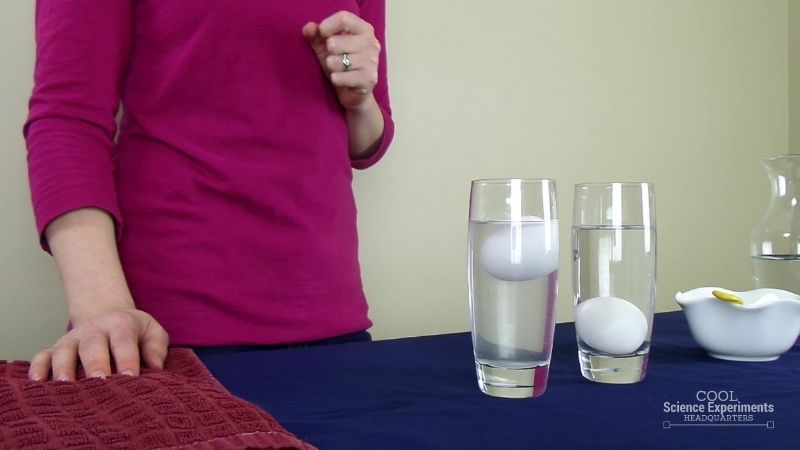
Step 5 – Next carefully place the second egg into the glass with the salt water. What happens to the egg? That’s right, it floats. Take a moment to make some observations. Why do you think one egg sinks and the other egg floats?
Find out the answer in the how does this experiment work section below.
Video Tutorial
Watch the Floating Egg Science Experiment Step by Step Instructions
How Does the Floating Egg Science Experiment Work
Why does the egg sink in regular tap water, but float in saltwater? The answer lies in the density of water!
Density is a measure of the mass per unit volume of a substance. Simply said, how much “stuff” in a given volume. Water has a density of 1 g/mL (g/cm3). Objects will float in water if their density is less than 1 g/mL. Objects will sink in water if their density is greater than 1 g/mL.
The egg will sink in regular tap water because the density of the egg is greater than the density of water. The egg’s density is only slightly higher than water at 1.03 g/mL, but that is enough to make the egg sink.
When you add salt to the water, you are increasing the density of the water by adding more mass (or stuff) in the given volume. You don’t really change the volume of the water by adding salt. By adding enough salt, you increase the density of the water so that it is higher than the density of the egg and the egg will float!
Floating Egg Science Lab Kit – Only $5
Use our easy Floating Egg Science Lab Kit to grab your students’ attention without the stress of planning!
It’s everything you need to make science easy for teachers and fun for students — using inexpensive materials you probably already have in your storage closet!
Other Ideas to Try
Try this experiment again, but instead of using an egg use a potato slice or a carrot slice. You will have to play around with the amount of salt you add to the water because all objects have their own unique density. Add salt a tablespoon at a time and mix well until you cannot see any salt in the solution, then add your object to see if it floats or sinks. Remove your object and keep adding salt until you can get your object to float. To make it a true science experiment, create a data table to keep track of how much salt you add to the solution.
I hope you enjoyed the experiment. Here are some printable instructions.
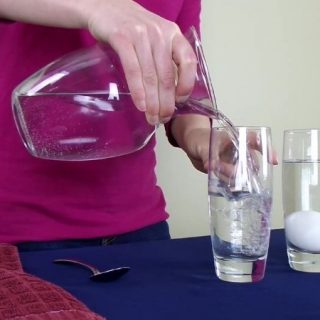
Floating Egg Science Experiment
Materials
- Egg
- Salt
- Water
- Drinking Glass
Instructions
- Fill a tall drinking glass about 3/4 full of water
- Place the egg into the glass of watch and watch it sink
- Fill another tall drinking glass about 3/4 full of water
- Add 3 Tablespoons of Salt and stir until combined
- Place the egg into the glass and watch it float
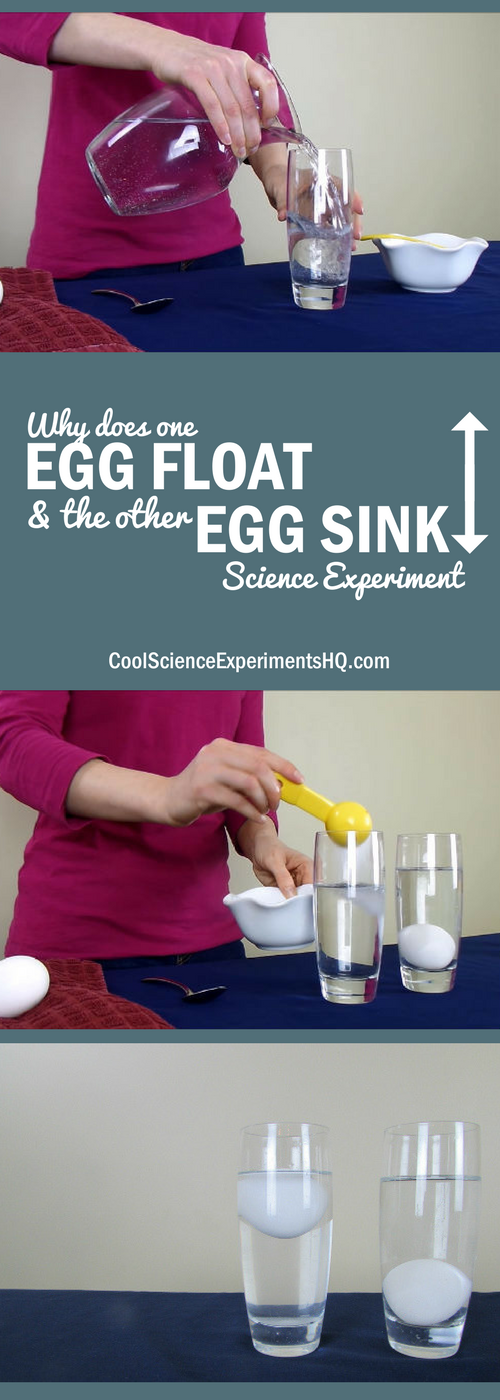
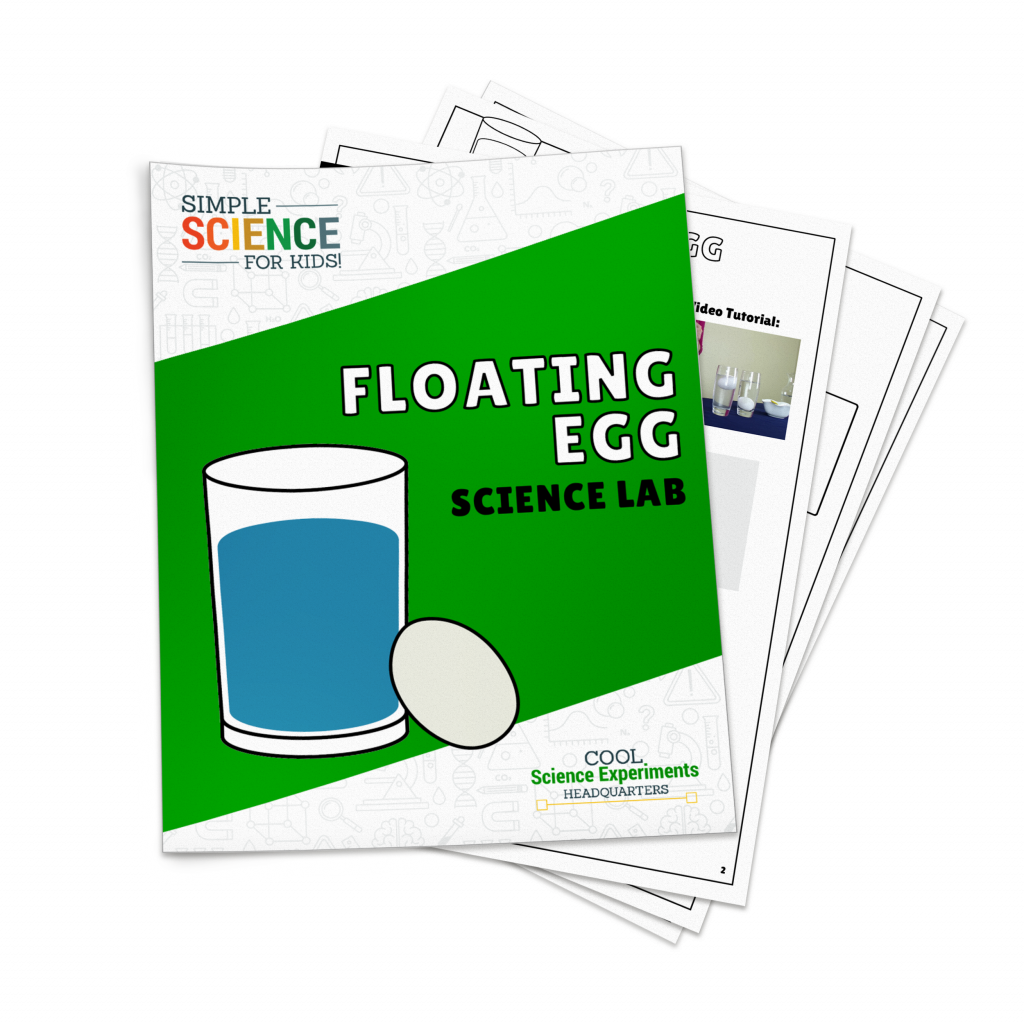

i love this experiment
I really loved doing this experiment with my class
The egg floats because the density of the salt water changes to be greater than the egg and the density of the egg becomes less dense so then the egg floats. But when you put an egg in tapwater the density of the egg is greater than the density of the tapwater which makes the egg sink.
bro I loved this experiment it was amazing!!! I tried it out with my friends and it worked! Thank you!
this is very helpful thank you
i loved this experiment : )
I love doing this experiment at home
It’s amazing thank you for sharing.
This is my science fair experiment! YAY!
wow what a great experiment m!!!